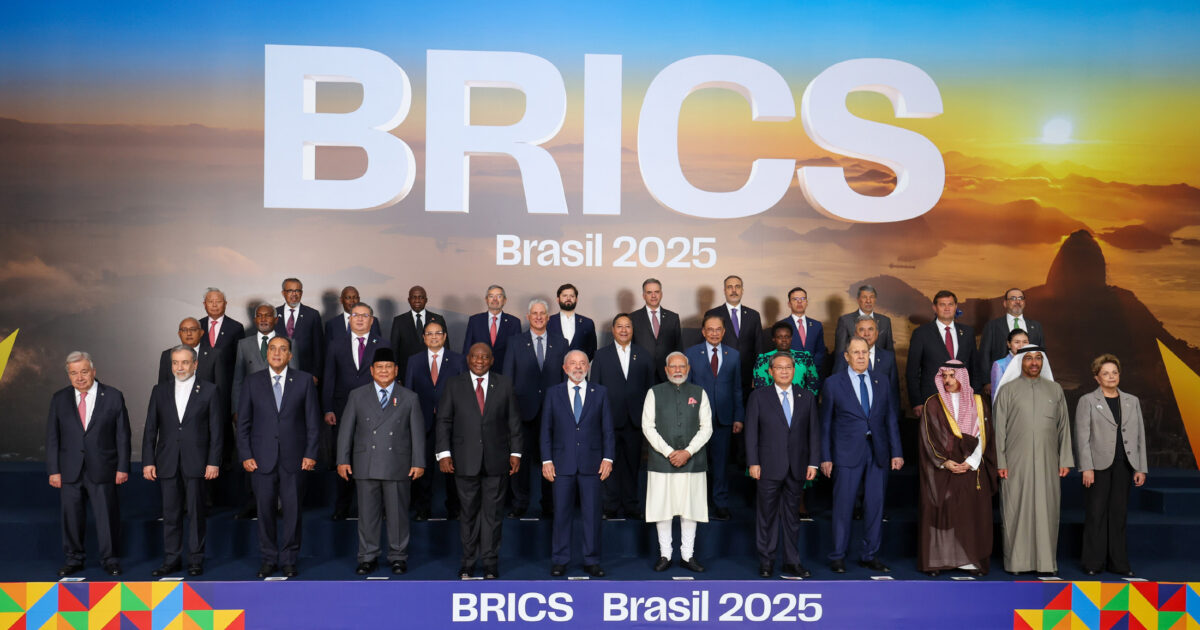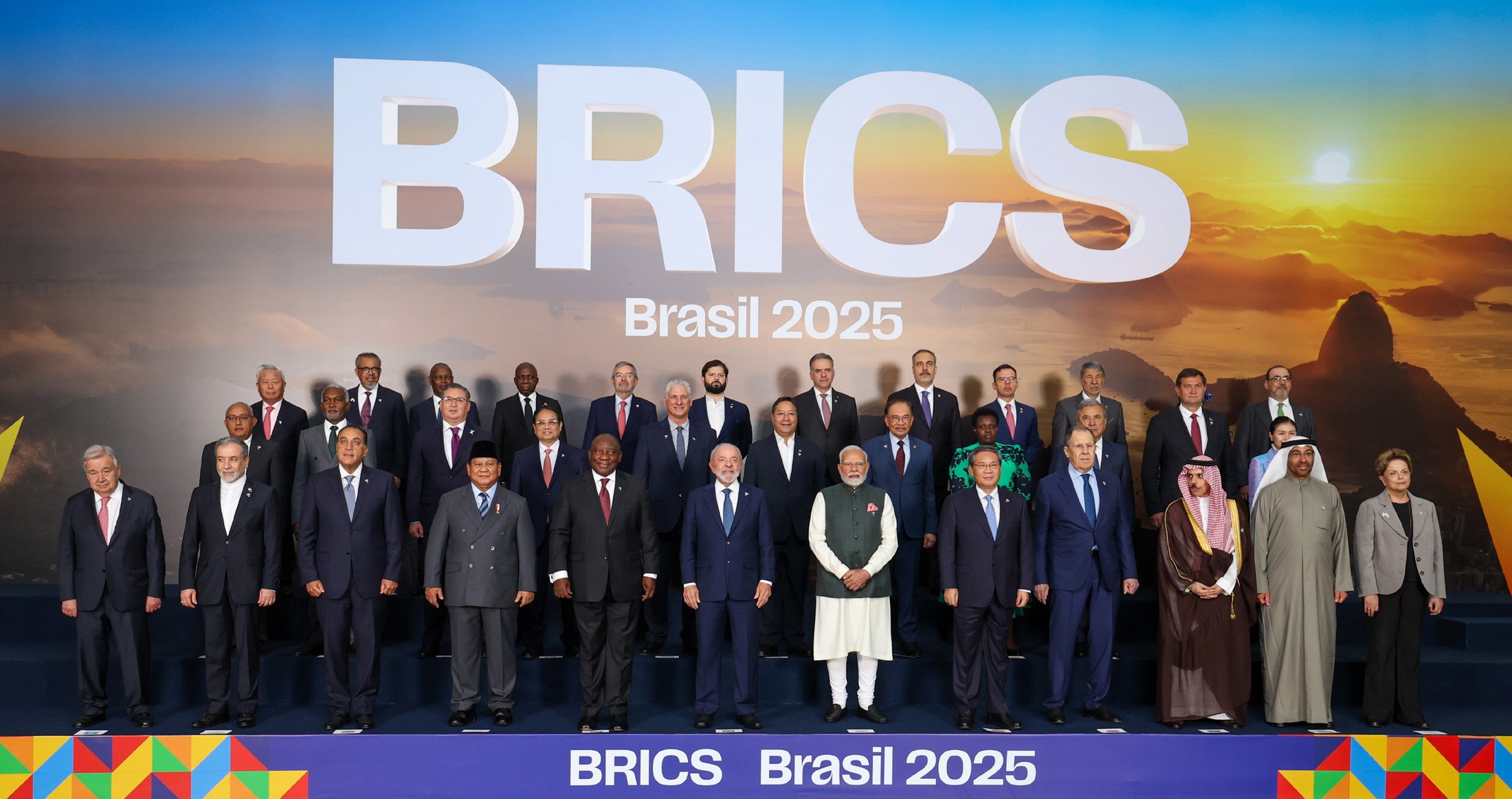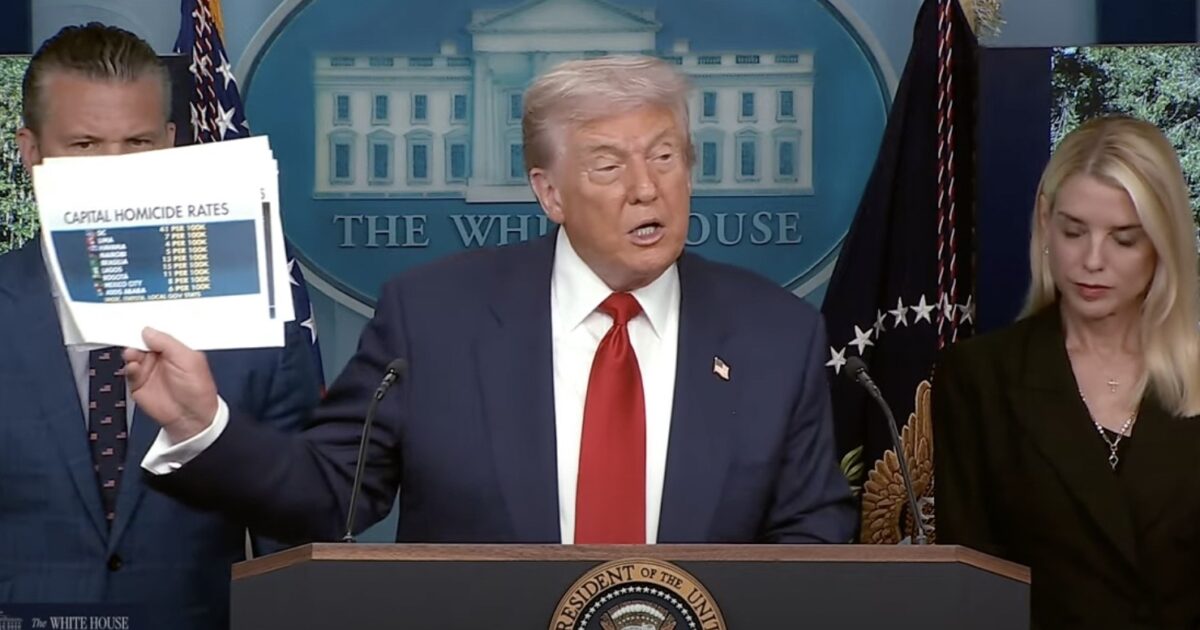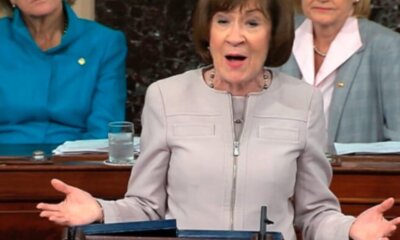Politics
OFPP making best-in-class contracts mandatory as part of FAR overhaul

As part of its overhaul the Federal Acquisition Regulation, the Trump administration is trying to put an end to most of the duplicative multiple award contracts that exist across government today.
Under the revised version of FAR Part 8, the Office of Federal Procurement Policy and the FAR Council are mandating the use of best-in-class or preferred contract vehicles for common goods and services. Under category management, these include everything from IT services to medical supplies to facilities and construction services.
Kevin Rhodes, the senior advisor at OMB and nominee to be the OFPP administrator, said the FAR rewrite isn’t just about reducing the red tape and burdens that have built up over the past 40 years, but these changes better prioritize consolidated governmentwide contracts to strengthen the government’s purchasing power, reduce duplication, lower administrative costs, shifting to a more strategic enterprisewide buying.
Kevin Rhodes is the senior advisor at OMB and the nominee to be OFPP administrator.
“The FAR Council’s model deviation is intended to drive acquisition efficiency in support of the president’s executive order on procurement consolidation. The EO made it clear that we need to buy common goods and services in the most efficient and effective manner possible for the American taxpayer and limit waste,” Rhodes said in an interview with Federal News Network. “For example, why are agencies independently buying laptops when we have contracts in place through GSA to do that so they can focus on their more agency-specific requirements? The implementation guidance that OMB put in place relies on common sense principles to drive greater acquisition efficiency, in particular, use existing governmentwide contracts before creating their own vehicles. There is no need to spend the time effort to do that when there’s already a way to go after those needs.”
The General Services Administration helped solve this buying of laptops and desktops several years ago. Agencies tend to buy a lot of them at the end of the fiscal year so GSA has set up a consolidated buying effort on Sept. 4.
Last year, the Governmentwide Strategic Solutions (GSS) for Desktops and Laptops Blanket Purchase Agreements program saved $179 million dollars, getting prices down to an average of $225 dollars per unit, wrote Larry Hale, the acting assistant commissioner in the Office of Information Technology in GSA’s Federal Acquisition Service in an Aug. 11 blog post.
Changes could lead to centralization, efficiency
Chris Hamm, a former GSA acquisition executive who used to run the FedSIM organization, said making the BIC and preferred contracts mandatory is going to put a huge damper on agencies trying to do their own contract vehicle.
He said because now agencies have to get a waiver from the head of the contracting activity and the program manager has to write a determination of finding and then route it past a lawyer, past their boss to the head of contract activity describing why they need a special contract, it will be become harder to get the approval.
“This may finally stop people from principally doing their own thing and they’ll just go use the existing vehicles,” said Hamm, who now is CEO of FIN Acquisitions. “Everyone always wanted to have their own special chef and soufflé, and there are certainly things that are absolutely unique for the Library of Congress or for the Department of the Air Force. But labor hour services and things like the pens and paper or fleet vehicles or computers, every company out centralizes the procurement of these things. That should absolutely be true for the government.”
Hamm added he believes the FAR Part 8 changes are part of the move to centralization and the drive for more efficiency.
“I think efficiency is largely a data play. It’s now much more important that we have all of the dollars flow through fewer pipes, and if you can get them centralized in a couple of these different vehicles, then you could legitimately do much better analysis using a lot of the new tools,” he said.
Over the course of the last decade or so with category management, Rhodes said the government may have missed some opportunities with consolidated buying.
“We want to use levers of category management, including the concept of best-in-class contracting, and take these concepts to the next level by prioritizing consolidated governmentwide contracts that deliver the best pricing value,” he said. “We reduce duplication, lower administrative costs and strengthen the government’s purchasing power. It also represents a broader maturation of federal procurement practices shifting toward more strategic, enterprisewide buying that ensures agencies rely on proven, high performing solutions.”
New BIC criteria underdevelopment
OFPP will issue guidance in the coming weeks that will establish new criteria for best-in-class contracts and preferred contracts.
Rhodes said OFPP will work with agencies, category managers and BIC contract holders on what that criteria should include. He said one goal of the criteria would be to focus on pricing.
“We want this to be really a game changer in terms of if you’re a BIC. We get the best pricing; we get the best contract mechanism, the best delivery timelines, all of the things that we should be doing through the acquisition system,” he said.
He added that vendors should be giving agencies their lowest prices, and maybe a “stair step” approach is needed where agencies pay one price for the first 10,000 that they buy, and then a lower price for the next so many tens of thousands that the government buys.
Rhodes said OFPP recognizes that the change in BIC criteria could disrupt the current environment and that’s why FAR Council and OFPP want to work closely with agencies and vendors alike.
FAR Part 12 and 40 also saw significant changes.
Under Part 12, Rhodes said the council removed requirements that are not necessary or in some cases don’t make any sense. One example is the old requirement for public companies to tell the government about the compensation of their senior executives. He said this is both unnecessary and duplicative.
In all, the update to FAR Part 12 reflects an approximate 30% reduction in its total size and agencies will no longer have to abide by more than 40 clauses.
“Agencies will be able to immediately begin eliminating 1/3 of the requirements from their future requirements that are not required by statute or executive order and have little to do with contract outcomes,” Rhodes said. “We did this to make it easier to buy commercially available solutions, leverage the talents of small businesses and other new entrants and build more competitive and resilient marketplaces for agencies in terms of the incorporation of simplified procedures in FAR Part 12.”
Hamm said another big change in Part 12 is the council made it very clear that quotations under the GSA Schedule are not the same as contract offers like agencies typically do when doing procurements under other parts of FAR Part 12 and FAR Part 15. The council highlighted the fact that quotations are less formal and should be a lot easier and a lot less important in terms of procedures.
Hamm said there’s several steps agencies normally have to take when doing a formal procurement, like having a technical evaluation plan, having evaluation scores and having competitive range.
Culture change remains biggest challenge
Under FAR Part 40, which is one of the newest sections of the FAR, the council tried to make the requirements easier to find, both for the workforce and the contractors.
The biggest change under Part 40 was the council got rid of explicit requirements under the American Security Drone Act of 2023 and simplified the expectations for how agencies should comply with the law.
Hamm and other experts say changing the FAR is the easy part. The real challenge comes for OFPP and the council when the agency contracting officers, program managers and industry begin change their approaches to acquisition.
Rhodes said OFPP is working with the Federal Acquisition Institute and the Defense Acquisition University on new training and guidance.
Additionally, the FAR Council is developing a companion guide and other deeper training documents.
“If we don’t change the culture, we will have failed. So we are putting some things in place that address the culture with the workforce, in terms of training, comprehension and getting after building that sense of it’s not about the least amount of risk, per se, but it’s about delivering capability first and foremost,” Rhodes said.
OFPP and the FAR Council are also asking industry and agencies for feedback on the changes to FAR. For these new latest updates, comments are due by Oct. 14.
“These latest changes are the first significant changes to how all acquisition will be done in the future, and this is incredibly positive,” Hamm said. “There’s other things that are also legislative proposals that are potentially going to come out, and we haven’t seen the changes to Parts 15, 16 and 19. But if this is a sign of where things are headed, then efficiency has won. I’m hoping that maybe Part 33 will change the protest rules. But as a leading indicator, this will make most acquisitions 50% faster. This is great.”
The post OFPP making best-in-class contracts mandatory as part of FAR overhaul first appeared on Federal News Network.
Politics
CIPS and BRICS: How China Failed to Undermine the US Financial System

 Prime Minister’s Office, India, GODL-India, via Wikimedia Commons
Prime Minister’s Office, India, GODL-India, via Wikimedia Commons
China has promoted two main mechanisms to challenge the dominance of the US dollar and the US-led financial system: BRICS and the Cross-Border Interbank Payment System (CIPS). Both have failed to achieve their goals.
BRICS remains only a political grouping, not a functioning trade bloc. CIPS, launched in 2015 to clear and settle cross-border renminbi (RMB) payments, was designed to reduce reliance on the dollar. Yet it is used mostly by China and a handful of sanctioned states, with limited global appeal.
By January 2022, CIPS claimed about 1,280 member institutions in 103 countries. However, that figure is misleading. The list includes Bank of China branches and subsidiaries abroad, the international offices of Chinese state-owned banks, a limited number of correspondent banks handling China trade, and even banking arrangements for Chinese diplomatic missions. In other words, this is not evidence of widespread international adoption but rather of China’s own institutional footprint.
Beijing has pushed trade partners to settle transactions in yuan instead of dollars, but most countries refuse. Even when yuan is used, it accounts for only a small share of any given transaction, since the US dollar remains the world’s reserve currency and few nations are willing to hold yuan.
The scale disparity underscores this reality. CHIPS, the US Clearing House Interbank Payments System, connects 11,000 institutions and processes $1.8 trillion daily. CIPS, by contrast, has barely more than 1,300 members and processes only around $91 billion per day. The gap between China’s system and the globally entrenched dollar system is enormous.
CIPS also remains heavily dependent on SWIFT, the global secure-messaging system that allows banks to communicate payment instructions with one another. Roughly 80 percent of CIPS transactions still use SWIFT messaging, making it impossible to function as a true alternative. Moreover, the renminbi’s global role remains negligible, accounting for just 2 to 3 percent of international payments and less than 2 percent of letters of credit.
CIPS exists primarily to expand the reach of a single nation’s currency. It lacks the neutrality of SWIFT, remains under Chinese regulatory oversight, and faces resistance from non-Chinese institutions that would need to install new messaging systems. In practice, it cannot replace SWIFT and functions only for yuan-based transactions.
The disparity in volume is staggering. SWIFT handles about 50 million messages daily and settles roughly $5 trillion per day, around $1.25 quadrillion annually. CHIPS processes $1.8 trillion daily, exceeding $400 trillion annually. By contrast, CIPS manages only about 30,500 transactions per day, with a daily value of $91 billion, totaling $24.47 trillion in 2024.
Despite years of promotion, CIPS has not meaningfully challenged the dollar system. Its “growth” reflects Russia’s isolation and China’s domestic push, not genuine global confidence in the yuan. Much of its activity has been driven by China’s own cross-border trade and Russia’s shift to CIPS after being cut off from SWIFT. In 2023, twenty-three Russian banks joined, and transaction volumes rose by 50 percent in 2022 and 25 percent in 2023—growth born of necessity, not international adoption. For now, both CIPS and BRICS remain symbolic rather than systemic threats to US financial dominance.
The other mechanism China has championed is BRICS. Originally comprising Brazil, Russia, India, China, and South Africa, the bloc expanded to ten members in 2025. At the 2024 BRICS Summit in Kazan, Russia, members again floated the idea of creating a new reserve currency, possibly backed by gold or a basket of national currencies, as an alternative to the US dollar. The goal was to assert economic independence and compete with the international financial system dominated by the dollar, which still accounts for about 90 percent of all currency trading.
Yet the idea has never moved beyond discussion. At the July 2024 BRICS summit in Rio de Janeiro, a gold-backed common currency was quietly dropped from the agenda. Barry Eichengreen, historian and economist at the University of California, Berkeley, dismissed the project outright, calling it a charade. India’s Foreign Minister S. Jaishankar was equally blunt, stating: “India has never been for de-dollarization. Right now there is no proposal to have a BRICS currency.”
The obstacles are obvious. BRICS is not a homogeneous group with shared aims, and the members are reluctant to sacrifice monetary sovereignty. No central bank exists to manage a common currency, and creating an issuing authority would be politically impossible. Even when Russia demanded in 2023 that India pay for oil in yuan, India refused, insisting on either rupees or US dollars.
Beyond the currency question, BRICS lacks the institutional framework of a true economic bloc. There is no free trade agreement, despite China proposing one in 2022. Trade among BRICS members accounts for only 6 percent of their combined total trade. Nor is there a mutual defense pact or intelligence alliance that would cement their cooperation.
The group’s only standing institution, the New Development Bank, is 20% smaller than the World Bank and still funds most of its projects in dollars. While China has signed swap agreements with 41 central banks, these arrangements are cumbersome, limited, and have not created meaningful liquidity alternatives.
Russia’s increased use of the yuan since 2023 reflects sanctions pressure rather than genuine de-dollarization. Elsewhere, adoption of the yuan remains negligible. BRICS membership alone has not translated into greater GDP growth for the countries involved, nor has it advanced their financial independence.
The verdict is clear.
A June 2024 study by the Atlantic Council’s GeoEconomics Center found that the US dollar remains firmly entrenched as the world’s primary reserve currency. Both BRICS and CIPS reflect China’s ambition to erode US financial dominance, but both face overwhelming structural, political, and economic obstacles. Far from dethroning the dollar, these initiatives have had no meaningful impact on the dollar-dominated system that continues to underpin the global economy.
The post CIPS and BRICS: How China Failed to Undermine the US Financial System appeared first on The Gateway Pundit.
Politics
Justice Department Investigating Falsified DC Crime Data – Deputy AG Todd Blanche: “We’re Investigating It, and Hopefully We’ll Get to The Bottom of It” (VIDEO)

President Trump announces plan to stop violent crime in Washington, DC – August 11, 2025
The Department of Justice is investigating fake crime reporting data from the Metropolitan Police Department as Trump takes federal control of Washington, DC, and deploys federal troops and agents to remove criminals from the streets.
As The Gateway Pundit reported, President Trump signed two executive actions to declare a “public safety emergency” in the nation’s capital, federalize the DC police force, and authorize the use of National Guard troops to tackle the rampant crime, homelessness, and illegal immigration crises.
But leftists and Democratic city leaders have repeatedly pointed to fraudulent data to falsely claim that DC is safe and livable and that President Trump’s actions are unjustified.
The Gateway Pundit reported that the DC Police Commander, Michael Pulliam, was placed on leave in May over allegations that he fudged DC crime statistics to make the city appear safer.
DC Police Commander Accused Of Altering Crime Statistics
The data claims that total violent crime for 2024 is down by 35% compared to 2023 and is at a 30-year low.
"In addition to the overall violent crime reduction, homicides are down 32%; robberies are down 39%; armed carjackings are down 53%; assaults with a dangerous weapon are down 27% when compared with 2023 levels, with the District reporting the fewest assaults with dangerous weapons and burglaries in over 30 years," a January press release from the United States Attorney for the District of Columbia’s office claims.
MPD Chief Pamela Smith issued a statement on the allegations: “Any irregularity in crime data brought to my attention will be addressed immediately,” Smith said. “I do not condone any official reclassifying criminal offenses outside the guidelines set in MPD policy.” Pulliam denies allegations that he altered crime data.
Now, the Department of Justice is probing the data.
Deputy Attorney General Todd Blanche recently joined Fox's Laura Ingraham to discuss the investigation and provide an update on Trump's federal takeover of the capital.
"I can't tell you for sure whether it goes further, but we're, as you just suggested, we're, of course, looking into this," Blanche confirmed when asked if the scheme involves other leaders of the Metropolitan Police Department.
"The reality is that we know that DC has been an incredibly unsafe place to live for a very long time, and so in some ways, it's not surprising that we hear about reports of this, of this type of conduct that suggests that DC is safer than everybody that lives here knows to be true. So, we're investigating it, and hopefully we'll get to the bottom of it at some point soon."
Blanche further spoke about some of the successes they've had, including over 80 arrests in one night and removing weapons, drug offenders, MS-13 gang members, and hardened criminals from the streets.
"The same liberal media that's out there criticizing us and saying that we're doing something wrong and we shouldn't have the National Guard. They're the same liberal media that turn off the mics and jump for joy because they can now go to a restaurant without fear of getting mugged," he said, also slamming the liberals and leftwing activists that advocate for liberal policies like no-cash bail.
"We're fighting judges at the federal level, we're fighting judges who are letting people out in prison, and we're trying to frankly embarrass local leadership that that feels confident in these no cash bail laws that allow somebody to commit a violent crime, and before the sun is set, they're back on the streets again. That is not America, that is not justice, that is not keeping America safe again, and so, in DC, what we're doing is we're showing an example to, hopefully, the rest of this country, that when you focus federal resources on keeping communities safe, it works."
WATCH:
Per the Hill:
The investigation, led by the Office of the U.S. Attorney for D.C., comes from the same office that earlier this year publicized that violent crime in Washington had reached a 30-year low.
The D.C. police union, which supported Trump’s takeover of the force, has said it doubts crime is as low as the city reported.
Statistics released by the city show a 27 percent drop in violent crime and a 4 percent drop in property crime from 2024 to this year. The declines are even more significant for the full year comparisons of 2023 and 2024, with violent crime dropping 35 percent and property crime dropping 11 percent.
MPD did not immediately respond to request for comment nor did the U.S. Attorney’s Office. D.C. Mayor Muriel Bowser’s (D) office did not comment.
The post Justice Department Investigating Falsified DC Crime Data – Deputy AG Todd Blanche: “We’re Investigating It, and Hopefully We’ll Get to The Bottom of It” (VIDEO) appeared first on The Gateway Pundit.
Politics
BetMGM Bonus Code FED150: Claim $150 Betting Bonus for MLB, U.S. Open, WNBA
Baseball fans can win big on MLB games this week by activating BetMGM bonus code FED150. This is an opportunity for new players to claim a $150 bonus or a $1,500 first bet. Activate this offer by clicking here.
Create a new account in select states and start with a $5 bet (MI, NJ, PA and WV). Anyone who picks a winner in these states will receive $150 in bonuses. Players in other states will be eligible for a $1,500 first bet. If that bet loses, players will receive up to $1,500 in bonuses.
BetMGM Sportsbook is raising the bar for fans this week. There are tons of MLB games to choose from on Wednesday night. Not to mention, the college football season starts on Saturday with Kansas State and Iowa State in the Aer Lingus College Football Classic. Here is a deeper dive into the details of this offer.
Click here to sign up with BetMGM bonus code FED150 and secure a $150 bonus (MI, NJ, PA and WV) or a $1,500 first bet.
BetMGM Bonus Code FED150 Offers 2 Promos
It’s important to note that this BetMGM promo is a state-specific offer for players. Most new users will qualify for the $1,500 first bet. Place a cash wager on any game this week. Anyone who loses on that initial wager will receive five bonus bets that add up to the initial stake.
As for players in Michigan, New Jersey, Pennsylvania and West Virginia, check out the 15-1 odds boost. New users can place a $10 bet on MLB, college football, NFL preseason or any other game. If that bet wins, players will receive $150 in bonuses.
This is a great time to sign up and start testing out the BetMGM Sportsbook app. With college football and the NFL starting soon, players can dive directly into the action.
Getting Started With BetMGM Bonus Code FED150
Creating a new account on BetMGM Sportsbook should not take long. New users can get in on the action in a few simple steps. Let’s take a closer look at the registration process:
- Click here to automatically redirect to a sign-up landing page. Apply bonus code FED150 to qualify for either offer.
- Fill out the required information sections to set up a secure user profile.
- Deposit at least $10 in cash using any of the preferred payment methods.
- Bet $10 to collect $150 in bonuses with a win (MI, NJ, PA and WV only).
- Place a $1,500 first bet on any game. Any losses will be offset with bonus bets.
Other Ways to Bet This Week
BetMGM Sportsbook will provide all new players with a sign-up bonus, but don’t forget about the other ways to win in the app. Players can grab an odds boost token for a parlay in any sport this week. Additionally, there is a parlay boost token for MLB fans as well.
Keep an eye out for different offers available in the app. With the NFL and college football seasons about to begin, there should be tons of options for players.
21+ and present in participating states. Gambling problem? Call 1-800-Gambler.
The post BetMGM Bonus Code FED150: Claim $150 Betting Bonus for MLB, U.S. Open, WNBA first appeared on Federal News Network.
-

 Entertainment5 months ago
Entertainment5 months agoNew Kid and Family Movies in 2025: Calendar of Release Dates (Updating)
-
Tech5 months ago
The best sexting apps in 2025
-

 Tech6 months ago
Tech6 months agoEvery potential TikTok buyer we know about
-
Tech6 months ago
iOS 18.4 developer beta released — heres what you can expect
-

 Politics6 months ago
Politics6 months agoDOGE-ing toward the best Department of Defense ever
-

 Tech6 months ago
Tech6 months agoAre You an RSSMasher?
-

 Entertainment2 months ago
Entertainment2 months agoBrooklyn Mirage Has Been Quietly Co-Managed by Hedge Fund Manager Axar Capital Amid Reopening Drama
-

 Politics6 months ago
Politics6 months agoToxic RINO Susan Collins Is a “NO” on Kash Patel, Trashes Him Ahead of Confirmation Vote




